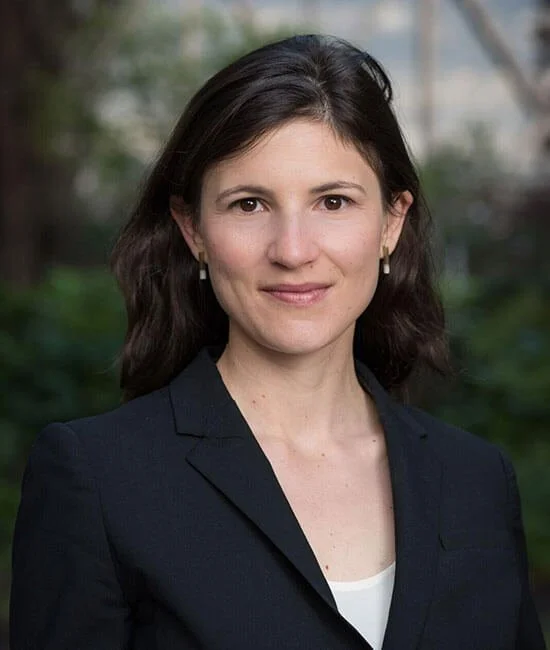Whistleblower Law, Impact Litigation, and the Potential for Social Justice
Jordyn Gleaton, Grants Intern, Impact Fund
Chances are, you don’t have the time or resources to research and understand everything that happens behind the scenes at most major corporations.
In the United States, federal law protects individuals who have information about possible wrongdoings that occur behind the scenes. These brave individuals are known as whistleblowers.
In my efforts to learn more about whistleblower law, I talked to Sarah “Poppy” Alexander, a partner at Constantine Cannon’s San Francisco office. Constantine Cannon focuses on antitrust and whistleblower law. Poppy has also been a member of the Board of Directors and Grant Advisory Committee at the Impact Fund since 2021.
Poppy Alexander: Upholding Corporate Accountability
Poppy Alexander: “Someone's going to listen to you…. They get tens of thousands [of tips] a year now, but still, someone is going to look at it... and that is really powerful. Just that alone, that someone will read it—that means a lot.”
Even as a child, Poppy would have told you about her aspirations to become a lawyer. After she graduated from college with a degree in political science, Poppy decided to continue her education at Harvard Law School. Poppy spent most of her time in law school at Harvard’s International Human Rights Clinic. A majority of her cases at this clinic sought to hold corporations accountable for human rights violations— an area of law that would influence the trajectory of Poppy’s career.
After law school, Poppy worked at Rosen Bien Galvan & Grunfeld LLP, a more traditional human and civil rights law firm that, amongst other things, works to ensure that incarcerated individuals receive appropriate health care. Here, Poppy spent a lot of time working on a case related to a county jail that used a private healthcare system that allegedly deprived incarcerated individuals of their right to adequate health care. Through her casework, Poppy learned that private healthcare systems often escaped their duty to provide their clients with adequate services. Ultimately, this was the original spark that led Poppy to want to hold corporations accountable through whistleblower law.The Limitations of Whistleblower Law.
While Poppy views whistleblower law as a tool to help the working class in the United States hold corporations accountable, she has also realized that there are fewer underrepresented communities amongst whistleblowers. While one might assume that underrepresented groups would utilize whistleblower law to protect themselves and their rights in the workplace, Poppy has observed that whistleblower law systemically discourages these groups from coming forward in the following ways:
Risk of Retaliation
One of the significant risks inherent in being a whistleblower is the risk of losing one's job and never working in that profession again. This is a risk that Poppy warns her clients about when they are contemplating becoming a whistleblower. Therefore, when coming forward, potential whistleblowers must reflect and decide if this is a risk they are willing to take. Poppy has found that women and people of color are less likely to take this risk considering that they have faced and overcome increased obstacles to obtain their position.
Required Trust in the Government
Whistleblowers must work directly with government officials, which requires a certain level of trust in the government. However, many communities in the United States—especially Black and Brown communities—lack trust in the government due to the United States’ historical and current systemic wrongdoings. For these reasons, the government’s involvement can prevent potential whistleblowers from coming forward.
In fact, Poppy has seen this with her clients who are minorities. “As they're sitting across the table from Department of Justice officials, next to an FBI guy who has a gun in his briefcase… that means something different depending on where you're coming from…. I mean, it scares me.... I realized that reads very differently, depending on who you are. So, it's something that we are all very conscious of trying to help our clients through.”
Not All Cases Qualify
Furthermore, whistleblower reward laws remain arguably limited in who they can help—depending on the program, the remedy may be limited by the conduct at issue, the nature of the company's business, or tar ownership of the company. For most cases to qualify as whistleblower cases, the case must include some aspect of fraud, and sometimes requires public funding. Therefore, if there happened to be wrongdoing by a company that was privately owned, received no public money or tax incentives, and was not a financial institution, then there would be a narrow path to bring the case under any of the whistleblower programs.
Poppy acknowledges that while the government has been able to provide such strong whistleblower programs, the requirements are very specific and limited. “Another hard thing about our practices is that we have very, very robust, strong laws, but they only apply to certain actions. And there are things that slip through the cracks.”
Impact Litigation: An Alternative Solution
The Impact Fund model is based on collective action to go after bad actors.
Harmful practices that cannot be addressed through a whistleblower case might be better suited to another form of impact litigation. Poppy says that she values her position on the Board of Directors at the Impact Fund because it inspires her to see so many alternative legal solutions that address corporate misconduct. In cases where whistleblower law does not apply, Poppy recognizes that advocates must “think about other creative legal strategies. And that's what the Impact Fund is all about.... So it's great. It's great to be able to participate in that.”
For example, Poppy admires the Impact Fund’s support of environmental justice litigation. Currently, no environmental whistleblower program exists. In cases where corporations emit toxins at a rate above the legal limit and hurt nearby communities, whistleblower law may not be of any assistance. Instead, Poppy states, “That's where the public interest litigation supported by Impact Fund grants becomes so critical. You may have a good environmental justice class action suit, or a good regulatory complaint from this scenario, but not a good whistleblower case.”
Potential for Broader Impact
While money may be a powerful motivator to “blow the whistle,” many underrepresented groups may not view finances as enough of an incentive to come forward when paired with the risks of retaliation and government involvement. In fact, instead of gambling on the risk of financial compensation that they may win if a case is successful, I believe most underrepresented groups may choose to keep working for the security of a stable income.
In my opinion, many older generations from underrepresented groups are oftentimes motivated to help their community and family move toward a more equal society. Perhaps if people from underrepresented groups knew that they could use whistleblower law to achieve systemic change to benefit their communities, as they can with other forms of impact litigation, they would be more likely to take advantage of these programs.
Moving Forward
Six whistleblowers and former government scientists were sidelined by the Trump administration and refused to be silenced.
Currently, many whistleblower lawyers are advocating for more programs to expand the reach of their practice—such as an Environmental Protection Agency (EPA) whistleblower program. In addition, broadening current programs to include greater systemic impact could allow for more participation from members of underrepresented groups.
Until changes are implemented and new programs are created, other forms of impact litigation, such as class action lawsuits, can play a key role in addressing these issues. Furthermore, by revealing the systemic issues within corporations, other forms of impact litigation shed light on the possible areas where whistleblower litigation could expand. With these potential changes, the important work of whistleblower law can extend to address wrongdoings that currently slip through the cracks.





